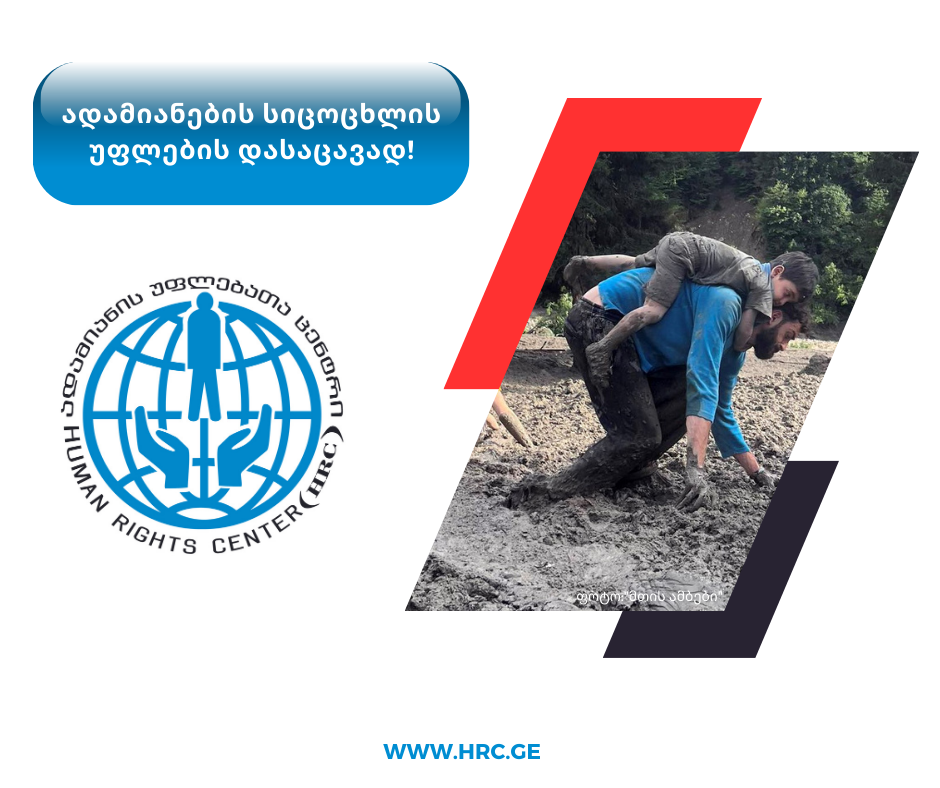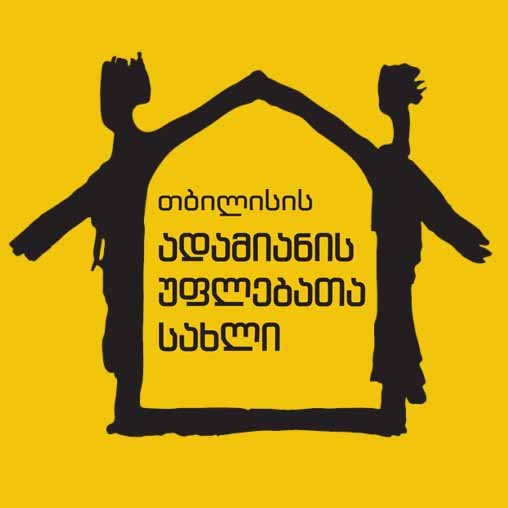News
Protection of people's right to life - statement of the Human Rights Center regarding the Shovi disaster
09.08.2023

Font size
On the 3rd of August, 2023, in the Racha region, up to 20 individuals lost their lives due to the natural disaster. Rescue teams are still trying to find the missing in Shovi. The Human Rights Center conveys deep sorrow over the tragedy and expresses its condolences to the families of those who tragically lost their lives as a result of the landslide.
The right to life of a person is protected by Article 10 of the Constitution of Georgia. According to the European Convention on Human Rights, “Everyone’s right to life shall be protected by law”. While the government has a positive obligation to safeguard the right to life.
More specifically, the European Court of Human Rights clarified in one of the cases that in order to avoid the risk of a landslide, the authorities are obliged to take appropriate preventive measures and have an effective response to protect the right to life of people. In the mentioned case, since the government failed to provide an adequate preventive and emergency response, according to the decision of the European Court of Human Rights, the state was obliged to compensate the victim for material and moral damages.
In connection with the Shovi tragedy, the Ministry of Internal Affairs has initiated an investigation based on Articles 116 and 240 of the Criminal Code of Georgia, that refers to negligent killing and breach of safety regulations during mining, construction or other works.
The Human Rights Center calls upon the investigative bodies to conduct the investigation objectively, thoroughly and effectively, so that in case of identifying the fault of the relevant state agencies, all persons involved in the crime are held accountable.
It is crucial to carry out the investigative process in a manner that all questions of high public interest are answered, including:
1) What preventive works were carried out in order to avoid the tragedy?
According to the Law of Georgia on Public Safety, Article 36 the Emergency Management Service shall coordinate the operation of the National System and shall be responsible for planning and implementing the policy in the field of public safety. Additionally, according to the Law of Georgia on Environmental Protection, the competence of the Ministry of Environment and Natural Resources Protection of Georgia is to implement a state policy in the field of environmental protection and to carry out an overall coordination of the environmental observation (monitoring) system. Thus, it is important to analyze whether there was an appropriate policy planned for the protection of public safety in Shovi.
Also, according to Article 39 of the Law of Georgia On Public Safety, in order to minimise the emergency risks the Emergency Management Service shall identify, analyse and assess risks on the permanent basis, plan and implement preventive measures and projects in cooperation with bodies of the public authorities, Autonomous Republics, municipalities and legal entities under public and private law. Therefore, it should be determined whether the risks in Shovi were consistently under control and why the relevant agencies did not take preventive measures despite citizens raising concerns about these issues as far back as 2020.
2) Was the early warning system for emergencies operational?
According to Article 4 of the Decree of the Government of Georgia "On the Approval of the Regulations of the Emergency Management Service", the function of the Emergency Management Service is to organize the establishment and advancement of an early notification system for anticipated or ongoing emergency scenarios, along with gathering and processing the necessary data within the framework of the early notification system. Furthermore, based on the statement from 2018 of the present Vice Prime Minister of Georgia, a plan was established according to which by 2021 a comprehensive early warning system would be implemented in Georgia, with the responsible unit within the Ministry of Environment Protection and Agriculture supervising its execution as part of preventative measures. Therefore, it should be determined why the landslide could not be predicted through the emergency early warning system in advance, whether there were artificial alterations to the riverbed, if there were changes of the water levels in the Buba River leading to flooding.
3) Was the mobilization of equipment for rescue operations delayed?
3) Was the mobilization of equipment for rescue operations delayed?
According to Article 23 of the Law of Georgia on Public Safety, in matters related to the protection of the population and of the territory from emergencies powers delegated to municipalities is to mobilise respective Response forces during emergencies and organise their involvement in emergency rescue operations; also, ensure training and constant readiness of the Response Forces.
Based on the information that has been spread, the helicopter landed in the disaster area three hours after the incident. Thus, during this timeframe, people had to deal with natural disaster themselves without any rescue aid. The rescue helicopter of the Border Police of the Ministry of Internal Affairs stopped the work during the night due to limited visibility. As for the construction of the necessary bridges, it occurred on the day subsequent to the incident.
Therefore, the investigation should assess whether it was possible to save people's lives if rescue operations were conducted promptly.
4) Are the rescued and missing people registered in the relevant lists so that the search operations may be conducted wisely?
The official list of missing and rescued individuals has not been made public by the authorities, leading to a sense of uncertainty. This is particularly concerning in situations involving foreign citizens who are missing and aren't being actively sought by their families. By making these lists accessible to the public, citizens would have the opportunity to provide precise information. This contribution could be helpful in establishing the total number of missing people so that the population is well-informed, and search and rescue operations are conducted in a relevant manner.
5) In order to effectively deal with the consequences of the disaster, would the assistance of other countries be vital?
It is important to determine whether additional resources were needed for the efficient implementation of emergency operations. Among them, whether the additional equipment was needed from other countries and whether the relevant agencies have conducted negotiations in this regard.
It is important to hold all relevant agencies and officials accountable in case the response to a natural disaster was ineffective or if it is determined that state agencies could have anticipated and taken preventive measures, including by informing the population, by which they could reduce the number of victims.
Human Rights Center
News
18.04.2025
The Suspension of Visa Liberalization Serves the Interests of Ivanishvili and Russia—Not the Georgian People
20.03.2025




